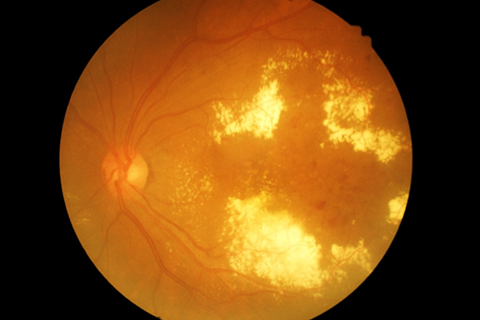Diabetic Retinopathy
Understanding Diabetic Retinopathy: Safeguarding Your Vision
Introduction
Welcome to Peak Retina, your dedicated partner in maintaining and enhancing your eye health. We understand the significance of clear and healthy vision, and we are committed to providing you with the highest quality care for all your retinal concerns. In this article, we will explore Diabetic Retinopathy, a condition that affects individuals with diabetes.
What is Diabetic Retinopathy?

Diabetic Retinopathy is a common eye condition that arises as a complication of diabetes. It specifically affects the retina, the light-sensitive tissue located at the back of your eye. The retina plays a vital role in capturing visual information and sending it to your brain for processing. Peak Retina specializes in the care of this very delicate tissue and partners with you to maximize your eyesight.
When diabetes is not well-managed, it can lead to elevated levels of glucose (sugar) in the blood. Over time, these high sugar levels can damage the tiny blood vessels within the retina. This damage results in a cascade of changes in the retina, leading to the development of Diabetic Retinopathy.
Stages of Diabetic Retinopathy
Diabetic Retinopathy progresses through several stages:
Mild Nonproliferative Retinopathy:
- In the early stage, small areas of swelling and fluid leakage from retinal blood vessels occur.
- Patients may not experience any noticeable symptoms at this stage.
Moderate Nonproliferative Retinopathy
- As the condition progresses, more blood vessels become blocked, leading to reduced blood supply to the retina.
- Patients may begin to notice subtle vision changes, such as blurriness or mild vision impairment.
Severe Nonproliferative Retinopathy:
- In this stage, a significant number of blood vessels become blocked, causing more pronounced vision issues.
- Patients may experience dark spots or missing areas in their vision.
Proliferative Diabetic Retinopathy:
- The most advanced stage, proliferative retinopathy, is characterized by the growth of abnormal blood vessels on the surface of the retina.
- These new vessels are fragile and prone to bleeding, which can lead to severe vision loss.
Symptoms of Diabetic Retinopathy

Early stages of Diabetic Retinopathy may not produce any noticeable symptoms. However, as the condition progresses, patients may experience:
- Blurred or fluctuating vision.
- Dark or empty spots in their field of vision.
- Difficulty seeing at night.
- Impaired color perception.
- Vision that seems hazy or washed out.
Early Detection and Treatment
Regular eye exams are essential for the early detection of Diabetic Retinopathy, especially if you have diabetes or other risk factors. At Peak Retina, our highly skilled retina specialists utilize advanced diagnostic techniques to assess the health of your retina. Early detection can make a significant difference in preserving your vision and effectively managing the condition.
Treatment options for Diabetic Retinopathy depend on the stage and severity of the disease. For mild to moderate cases, lifestyle modifications and close monitoring of blood sugar levels may be recommended. Managing diabetes effectively can slow the progression of retinopathy.
In advanced stages or in cases of severe Diabetic Retinopathy, more aggressive treatments may be necessary. These may include:
- Intravitreal Injections: Medications injected into the eye to reduce swelling and prevent abnormal blood vessel growth.
- Laser Therapy: Laser treatment can help seal leaking blood vessels and prevent further damage.
- Vitrectomy: In advanced cases with significant bleeding into the vitreous gel, surgery may be required to remove the blood and scar tissue.
Conclusion
Diabetic Retinopathy is a serious but manageable condition that can impact your vision if left untreated. At Peak Retina, we are dedicated to helping you understand and address this condition, providing the highest quality care and support for your vision.
Your vision is precious, and we are here to safeguard it. Regular eye exams, diligent diabetes management, and timely intervention are key to preventing vision loss from Diabetic Retinopathy. If you have diabetes or are concerned about your eye health, please schedule an appointment with us. Together, we can work towards ensuring a brighter and clearer future for your vision. Your sight is our priority at Peak Retina.

